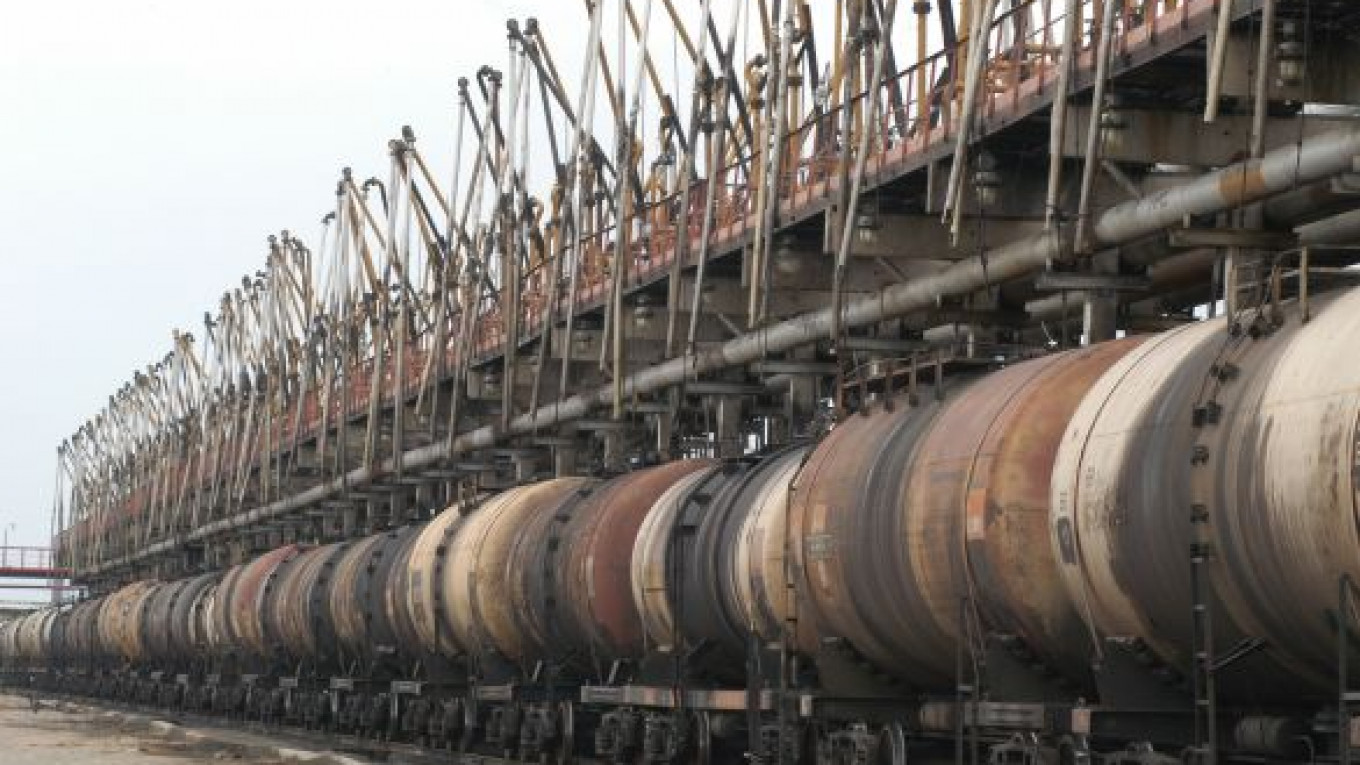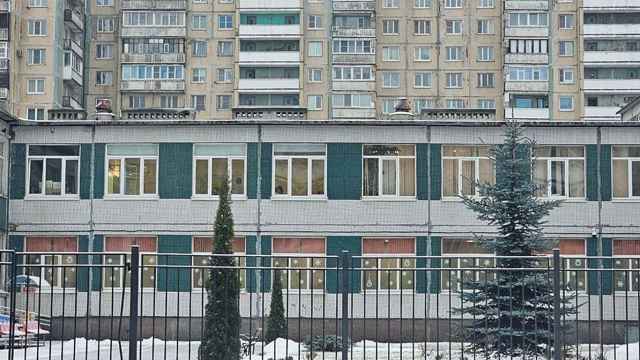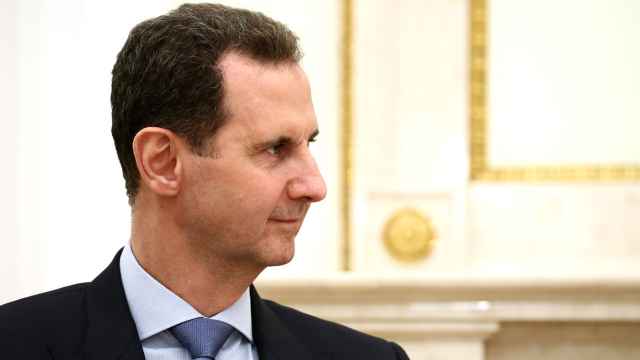Russia will flood Europe with diesel and starve it of heavy fuel oil when the country completes a $55 billion refining overhaul, further threatening the continent's downstream sector as it struggles to survive.
The investments, which seek to capture more value from each barrel of Siberian crude by refining it more deeply in Russia, would choke flows of straight-run fuel oil used as a feedstock by Europe's advanced processing units.
Russia's Soviet-built refineries, some dating to the 1940s, mainly operate simple distillation units. Straight-run fuel oil, known as mazut, is the residue left after lighter fractions are evaporated off.
The planned installation of 130 new units, such as the long-awaited 60,000-barrels-per-day hydrocracker at Surgut's northwestern Kirishi refinery, will enable Russia to increase yields of lighter products instead. That will create a huge surplus of high-quality diesel on Europe's doorstep.
If that is not bad enough, the world's largest oil producer wants to triple crude exports to China. With Russian oil output likely to stagnate in the years ahead, Europe's refiners may find margins squeezed further by a dearth of Urals export crude.
"European refineries are going to be hit across the board," said Heitham Tolba, a downstream analyst for energy consultants Wood Mackenzie.
Russia exports about 3.5 million barrels per day, or bpd, of crude to Europe. Fuel exports total 700,000 bpd — a third of Russia's overseas oil product deliveries.
The government backed the refinery overhaul in 2011 after gasoline supplies almost ran dry due to a lack of modern refining capacity, riling drivers not long before Vladimir Putin's election to a third Kremlin term.
The upshot of ensuring that motorists have enough premium gasoline to fuel Russia's growing fleet of Western-made cars will be a diesel surplus that could reach 65 million tons a year by 2020, Moscow's Skolkovo business school estimates.
Capacity Boost
Russia's primary refining capacity, which distills oil into basic fractions such as naphtha, fuel oil and low-quality diesel, will expand by only 7.5 percent to about 285 million tons by 2020, according to the plan.
Secondary refining, in which complex hydrocarbons are "cracked" into simpler ones, will grow by 90 percent over the same period to match Russia's primary refining capacity.
This will boost output of high-quality products, including ultra-low-sulfur diesel, or ULSD, with sulfur content of 10 parts per million. Russia will require vehicles to use ULSD from 2016.
In addition to the diesel glut, Skolkovo expects Russia to produce a gasoline surplus of 10 million tons in 2020.
This assumes that domestic consumption of oil products will grow at a yearly rate of 3.5 percent, even after allowing for fuel-efficiency improvements in Russia's vehicle fleet.
The European market, now experiencing diesel shortages, would be the main destination for the surplus, as most Russian refineries are located in the west of the country.
Export Boost
Wood Mackenzie expects Russian ULSD output to top 1.1 million bpd in 2016, up from 750,000 bpd now. Exports may double to 680,000 bpd as Russia competes with European refiners to fill a growing diesel shortfall.
European refineries are already suffering from low margins, forcing about 1.8 million bpd of capacity to be mothballed since 2009, according to Deutsche Bank. That leaves 10.7 million bpd of operating capacity in the European Union plus Norway.
The plants most vulnerable to closures are the less complex refineries in the Atlantic basin that rely heavily on gasoline exports.
Exporters of high-quality Russian oil products to Europe have also been encouraged by a decision to tighten environmental rules there. These state that from 2015, the maximum sulfur content of shipping fuels will be cut by 90 percent to 0.1 percent in Sulfur Emission Control Areas, which include some of Europe's busiest sea-lanes.
At the same time, European refineries are cutting runs as diesel production requires a strong premium to prices for benchmark grades such as North Sea Brent crude to be profitable.
Crack spreads LGO-LCO1=R, measuring the premium of January European gas oil futures over Brent crude, are nearly $15 per barrel, indicating that producing diesel is slightly profitable.
Yet the overall profit on refining a barrel of Urals Export Blend crude in the Mediterranean is just 12 U.S. cents, down from more than $4 early in the year.
"Many of the diesel suppliers that will export more diesel to Europe, especially Russian ones, can be profitable even when diesel spreads to Brent weaken. So even when the diesel spread weakens, they will continue to deliver diesel to Europe," said Andrew Reed from U.S.-based think tank ESAI Energy.
The shale-energy boom is meanwhile expected to propel U.S. oil production past Russia's as soon as next year, the International Energy Agency estimates. That in turn will boost North America's own diesel surplus.
In its 2025 outlook, Russia's second-largest crude producer LUKoil said net diesel exports from the U.S. would peak at 500,000 bpd in 2015. That contrasts with net imports of 200,000 bpd back in 2005.
"The Russian refiners are close to European markets, and they have the advantage of a local supplier. They still have to compete against the Americans — but they have the advantage of the proximity," said WoodMac's Tolba.
A Message from The Moscow Times:
Dear readers,
We are facing unprecedented challenges. Russia's Prosecutor General's Office has designated The Moscow Times as an "undesirable" organization, criminalizing our work and putting our staff at risk of prosecution. This follows our earlier unjust labeling as a "foreign agent."
These actions are direct attempts to silence independent journalism in Russia. The authorities claim our work "discredits the decisions of the Russian leadership." We see things differently: we strive to provide accurate, unbiased reporting on Russia.
We, the journalists of The Moscow Times, refuse to be silenced. But to continue our work, we need your help.
Your support, no matter how small, makes a world of difference. If you can, please support us monthly starting from just $2. It's quick to set up, and every contribution makes a significant impact.
By supporting The Moscow Times, you're defending open, independent journalism in the face of repression. Thank you for standing with us.
Remind me later.






